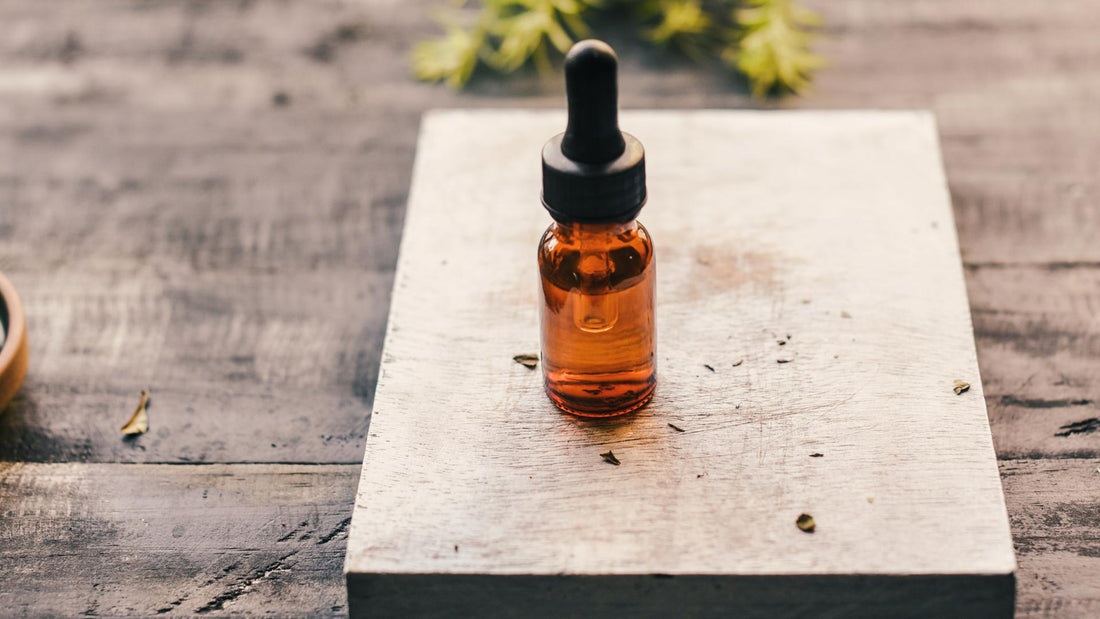How to Choose A High Quality Herbal Tincture
Anthony Gucciardi
Finding the right herbal tincture can be difficult, especially when it feels as if you need to have decades of industry experience in order to choose the right one. Of There are indeed many less-than-reputable sellers out there who do not follow high quality standards, and it's important to know what you are looking for when it comes to purchasing something that you will be taking into your body.
Thankfully, there are steps you can take in order to help ensure you are choosing the right high quality herbal tincture -- and not falling for any scams or questionable products that have not been verified to contain not only the actual ingredients listed on the label, but ingredients that are actually lab tested for purity.
Here are 3 key steps to help you make an informed decision when it comes to buying high quality herbal tinctures.
1. Make Sure The Herbal Tincture Is Made In An FDA-Registered cGMP Facility / Lab
The first step is to ensure that the herbal tincture you are looking to buy has been manufactured in a facility that has been registered with the FDA and certified to maintain high quality manufacturing processes. This does not mean that the product is FDA approved, but that the place in which the herbal tincture is being made meets the FDA's Current Good Manufacturing Practice (CGMP) regulations.
These regulations cover everything from safety to the quality of the entire process. The cGMP procedures are spelled out with clarity and manufacturers that follow them (and comply with inspections and FDA mandated changes) are in a much higher category of trust.
As the FDA Website states:
"CGMP refers to the Current Good Manufacturing Practice regulations enforced by the FDA. CGMP provides for systems that assure proper design, monitoring, and control of manufacturing processes and facilities. Adherence to the CGMP regulations assures the identity, strength, quality, and purity of drug products by requiring that manufacturers of medications adequately control manufacturing operations."
2. Ensure Lab Testing For Herbal Tincture Ingredients

While it is a little-known reality, some ingredients -- particularly herbal ingredients -- may come from suppliers that do not control for levels of purity and other factors before they are placed into the final formulation. Manufacturers should also be following cGMP guidelines on sourcing raw materials here as well.
Characteristics like identity, strength and composition should be confirmed through labs that are accredited to perform the work. What this really means is that the herb is verified to not be counterfeit or contaminated with other herbal ingredients, that it does not contain harmful amounts of metals or bacteria, and that the potency is confirmed.
ISO/IEC 17025 is the main standard by which labs can be qualified to perform the appropriate testing. From the ISO website:
"ISO/IEC 17025 enables laboratories to demonstrate that they operate competently and generate valid results, thereby promoting confidence in their work both nationally and around the world."
In an effort to choose a high quality herbal tincture, it is an important step to make sure that the herbal tincture you are buying has ingredients that have been lab tested for purity and authenticity through an accredited lab.
Read: The History of Herbal Tinctures
3. Look For How The Herbs Are Sourced

When it comes to herbal tinctures, sourcing is beyond an important consideration. Higher quality herbal tinctures usually fall into the categories of using selectively cultivated, wild harvested (wildcrafted), or organic herbs. It's important, however, to ensure that you understand each of these distinctions and that you look for ethically-harvested options.
Wild Harvested / Wildcrafted Herbs
There has been much discussion and debate around whether what's known as wild harvested herbs are preferable and of a higher quality than other sources even including organic. Wild harvested herbs are sometimes referred to as 'wildcrafted' or 'foraged' as they are collected directly from their wild habitats in nature at the source.
This is in contrast to the many, many herbs that come from large-scale human cultivation sites. The United States alone produces around 200 billion pounds of herbs and spices per year according to PennState Extension. Wild harvested herbs are sought after as it is believed that the herbs can thrive in their own natural untouched environment and therefore be of a higher quality and potency.
It is for this reason and others -- such as the alluring idea that wild harvested / wildcrafted herbs are more 'natural' than farm-raised alternatives -- that many opt to choose wild harvested herbs over any other alternative including organic.
The Ethics of Wild Harvesting
However, it is essential to look for ethically-harvested wildcrafted ingredients. As National Geographic and many other outlets and research pieces have pointed out, many natural wild plants found not only in herbal tinctures but various wellness products are being harvested and subsequently negatively impacting the environment. Over-harvesting can lead to the elimination of native plant populations, and even affect the nearby peoples who rely on them.
Organic Herbs
While organic herbs may not necessarily come from their natural environment (you can probably forget the idea of your chosen herb blissfully blowing in the wind on the side of a mountain), the regulations around USDA organic certification do allow for some peace of mind around the high quality standards necessary to meet them.
The Organic Trade Association details these standards:
"Unlike other eco-labels, the organic label is backed by a set of rigorous federal production and processing standards. These standards require that products bearing the USDA organic label be grown and processed without the use of toxic and synthetic pesticides and fertilizers, genetic engineering, antibiotics, synthetic growth hormones, artificial flavors, colors, preservatives, sewage sludge and irradiation."
There have been concerns raised around what is allowed to 'get through' the organic regulations, particularly in regards to pesticide use, and whether or not buying organic is worth it.
As the Hunter College New York City Food Policy Center writes:
"In 2012, a USDA study revealed that 39 percent of 571 samples of domestic and imported organic produce contained pesticides. The study authors suggested that the reasons for this were that some were mislabeled conventional produce while others were organic produce that hadn’t been properly protected from banned pesticides. However, there’s a catch: It wasn’t until 2013 that the NOP began requiring its certifiers to test at least five percent of its certifying operations, a practice that now helps to ensure that organic producers are remaining on the up and up."
What is clear, however, is that products certified organic go through a number of high quality verification processes that can speak to its likely quality. Various organizations certify products to be USDA Organic based on certain criteria, and while there is no such government-backed regulatory process for wild crafted or wild harvested herbs, herbs that are certified organic can also be considered a 'cut above' in terms of sourcing the highest quality herbal tincture.
Herbal tinctures and herbal traditional applications have been a primary component of humankind's medicinal system for millennia and contributes in a significant way to modern conventional medicine. The use of herbs in a liquid form is a tradition that can provide innumerable benefit, and ensuring that what you are putting into your body is of the right quality is essential.
100% human-created content. Professionally reviewed for quality and information content.
Further Sources / Additional Reading:
John Hopkins
World Health Organization
Bloom Institute
Better Health



